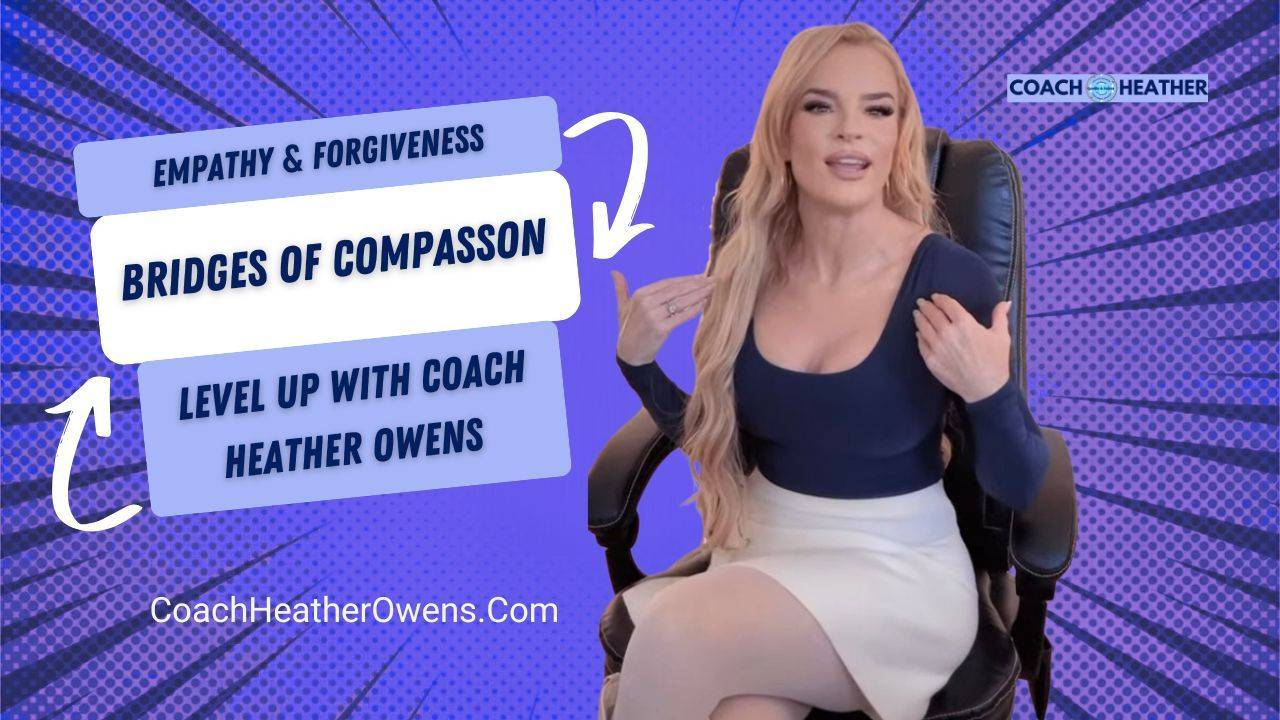Empathy and forgiveness are two of the most powerful tools we have for creating deeper connections—with ourselves and with those around us. They aren’t just nice concepts; they’re essential practices that free us from unnecessary pain, guilt, and resentment. When we embrace empathy and forgiveness, we open ourselves to more peace, joy, and meaningful relationships.
Understanding the Power of Empathy and Forgiveness
Empathy is our ability to understand and share the feelings of others, but it also starts within. When we learn to treat ourselves with kindness and grace, we naturally extend that same compassion to others.
Forgiveness, on the other hand, is often misunderstood. It’s not about excusing someone’s actions or pretending hurt never happened. It’s about releasing the emotional weight of anger, guilt, and resentment so that we can move forward with a lighter heart.
But how do we put these practices into action? Let’s explore a few simple yet powerful steps.
Step 1: Practice Empathy Toward Yourself
We often think of empathy as something we give to others, but real transformation begins when we extend that same kindness inward.
Why It Matters:
Many of us hold ourselves to impossible standards, replaying mistakes in our minds and criticizing ourselves in ways we’d never speak to a friend. This self-judgment only deepens feelings of shame and inadequacy, making growth harder. When we practice self-empathy, we shift from judgment to understanding, allowing ourselves to grow without the burden of harsh criticism.
Action Item:
The next time you catch yourself being critical, pause and ask:
"If a friend came to me feeling this way, what would I say to them?"
Write down those same words of encouragement and read them aloud to yourself. This simple practice rewires your mindset to be more compassionate and supportive.
Step 2: Extend Empathy to Others
Once we start showing kindness to ourselves, it becomes easier to extend it to those around us. Empathy allows us to see beyond the surface and understand that everyone carries struggles we may not see.
Why It Works:
Empathy doesn’t mean agreeing with someone or excusing harmful behavior. It means recognizing that people’s actions are often shaped by their own pain, fears, and past experiences. This perspective doesn’t erase accountability, but it does make space for understanding.
Action Item:
This week, challenge yourself to pause before reacting to frustration. Instead of assuming the worst, ask:
"What might this person be going through that I don’t see?"
By practicing this, you’ll find your interactions become more compassionate and less reactive.
Step 3: Embrace Forgiveness as a Path to Freedom
Forgiveness is often one of the hardest things to practice—especially when it comes to forgiving ourselves. But it’s also one of the most liberating.
Why It Matters:
Holding onto resentment or guilt doesn’t just affect the person involved—it affects you. It weighs on your heart, steals your joy, and keeps you tied to pain. Forgiveness is not about saying, “It’s okay”—it’s about saying, “I refuse to let this hurt control me anymore.”
Personal Reflection:
I had to learn to forgive myself for not always having the answers, for times I felt like I failed, and for moments when I was too hard on myself. And when I finally did? It was like shedding a heavy weight I hadn’t even realized I was carrying.
Action Item:
Think of a situation where you’re holding onto anger or guilt—whether toward yourself or someone else. Ask yourself:
"What is this resentment or guilt really costing me?"
Write a letter to yourself or the person involved, expressing what you’re choosing to release. You don’t have to send it—just the act of writing it can be incredibly healing.
Final Takeaway: The Journey of Compassion and Healing
Empathy and forgiveness are not one-time actions but ongoing practices. The more we choose them, the more peace, understanding, and love we bring into our lives.
Your Next Step:
Pick one small action today—whether it’s speaking kindly to yourself, extending grace to someone else, or making the choice to forgive.
And if you feel comfortable, share your experience in our community. Let’s support each other in this journey toward healing, connection, and growth.
Remember: You deserve the same kindness and grace that you so freely give to others.
Let’s keep leveling up together! 💙


